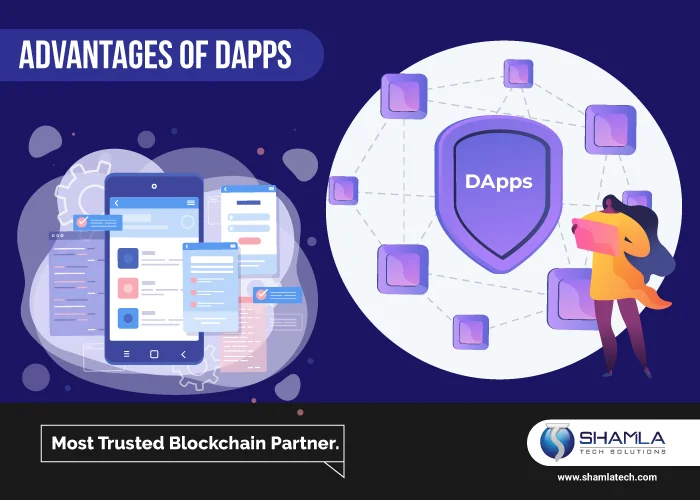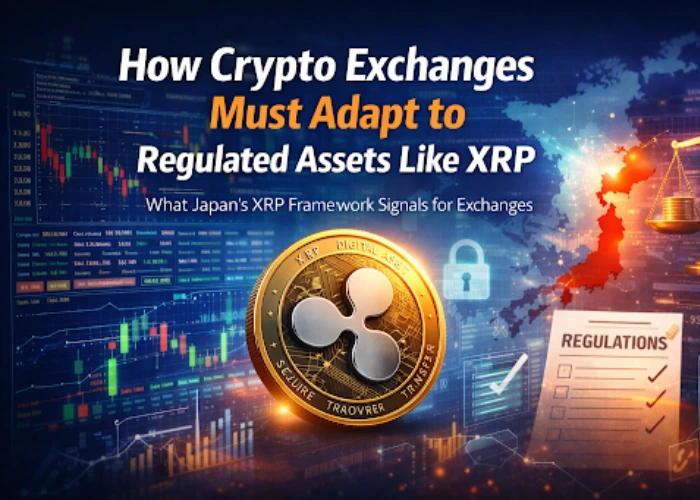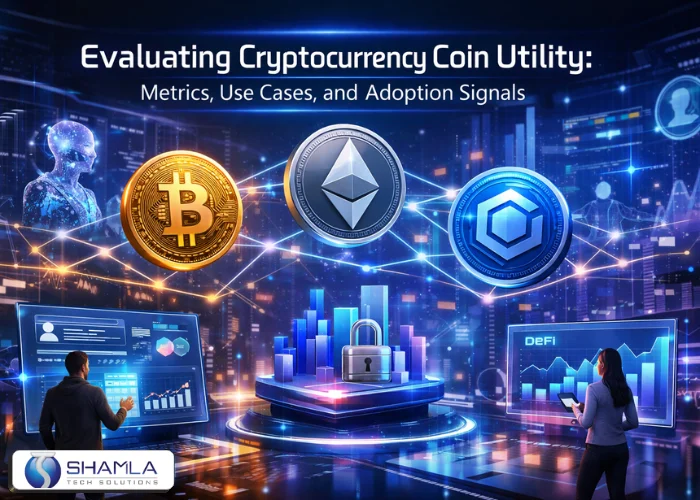What Are Defi Dapp Development Services?
DApps are decentralized applications running on blockchain networks. Each DApp follows a self-executing code called smart contracts, which define the functionality of the application. DeFi Dapp Development Services are really the bridge that enables the interaction with blockchain-based networks to the end-user.
The main attributes of DeFi Dapps Development services include:
- The code is open-source and managed autonomously
- Records and data are stored with blockchain technology
- Tokens are used to reward users also to incentivize specific actions
- The application runs on a cryptographically secured protocol
As dApps are distributed, they don’t use the traditional or the usual client-server network. In a traditional app, all the customers or clients refer to a single data center, making the app’s work centralized. All users share data and get it monitored by a central server of the provider.
So, what does DeFi Dapp Development Services so? DeFi Dapps Development assures the absence of central control, ownership, or management by a single authority being a person or an entity. Following the popularity of cryptocurrency and blockchain users now strive to make digital assets and transactions with them flexible, accessible also independent of any central authority, which is decentralization.
Thus, when we talk about DeFi Dapp Solutions, we mean that anyone with an internet connection and access to a particular blockchain or node can view and authorize transactions within it.
Another benefit of DeFi Dapps Development is that they use decentralized servers. Thus, even failure of one server won’t cause any disruption in the application used by its participants, with many alternative servers operating as usual. Using decentralized Apps is also much safer in terms of private or sensitive information. With usual apps being centralized holders of your private data, they may have concerns about their integrity and personal details safety for marketing purposes, data breaches and thefts by hackers, and other data-related concerns. But the problem is non-existent with Best DeFi Dapp Development Software Services as your information is stored in an open, distributed system that doesn’t belong to anyone and is completely encrypted with high-end blockchain code.
Features Defi Offers To Users:
Trustworthiness
Any particular institution or employee does not monitor or alter decentralized finance protocols; hence there is no risk of fraud. DeFi Application Development Services function on smart contracts, and once they execute on blockchain technology, nothing can interrupt their operations.
No need for permission
In Defi ecosystem, users need not ask permission to use any financial services. Anybody can build DeFi Dapp Solutions or get access to platforms without passing through verification processes like the ones required for the conventional banking system.
Users’ needs are prioritized.
Decentralized finance contracts are completely customizable and scalable; they can be pre-programmed to match users’ or the providers’ requirements and use cases.
Transparency
Defi maintains transparency with users as it totally eliminates manipulation allowing traceable transactions and also facilitating easy audits.
There is no censorship resistance.
Like in traditional banks, users are given access to financial instruments only if they fulfill certain criteria, but that is not the case in decentralized finance, where users don’t need any censorship agreement to access its financial instruments.
Convenience
Users interact with a smart contract through a front-end provided by the DeFi Dapp Development Services Company instead of reverse engineering how to submit transactions from the source code of the smart contract. This enhances the user experience as it does not require a deeper knowledge of the smart contract or how to interact with it. Assuming the DApp is correctly implemented, it is also error-free than manually generating transactions to interact with the smart contracts.
Features Defi Dapps Development Offer To Users:
Open-source
Consensus agreement between members is essential in DeFi Dapp Development Services to implement any changes making DApps code open for scrutiny. The processes are also done autonomously as an open-source.
Decentralization
Every transaction data on these decentralized finance applications Solutions are recorded on the decentralized blockchain network. The data are totally encrypted on a public network.
Incentivized
Crypto tokens are used to incentivize users. Users generate crypto tokens after fulfilling tasks like verifying transactions, contributing value including receiving rewards.
Working protocol
The entire participants of DApps are required to agree on an applicable cryptographic algorithm, for instance, proof of work (POW) and proof of stake (POS), to focus on proof of value.
The inevitable onslaught of DeFi Dapp Development Services adoption will render numerous practices obsolete. It may be a bold and distant topic, but services such as banking will be made redundant as the world learns to process and finance itself by self-sustaining, trust-less, and fully decentralized networks. Large corporations hurrying to secure their place in the decentralized blockchain movement are only proof of that.
Here Are The Top Dapps You Could Rely On:
- Polygon (MATIC)
Polygon or Matic is an interchain scalability protocol that provides space for blockchain networks that do not connect because of network congestion and other issues. Polygon aims to bring the customizability and scalability of altcoins with Ethereum’s liquidity, security, and more interoperability.
- UniSwap
Uniswap is one of the top decentralized financial protocols that enable you to buy, sell, and trade cryptocurrencies on the Ethereum blockchain through the use of smart contracts. As Uniswap is decentralized, users gain total control over their funds, unlike centralized exchanges, which makes users give up their private keys.
- ChainLink
Chainlink is a decentralized oracle for blockchain that provides smart contracts on any blockchain to make use of off-chain resources, including verifiable randomness, immutable price data, external APIs, and many more.
- PancakeSwap
PancakeSwap is very similar to UniSwap except that, it is built on the Binance Smart Chain, which makes it a faster and cheaper alternative to Ethereum. PancakeSwap offers users to swap between digital currencies by leveraging the liquidity pools on PancakeSwap.
- Decentraland
Decentraland is a platform built on Ethereum that brings together blockchain and virtual reality to enable users to buy, sell, and trade digital assets in a virtual world setting. Here the digital assets can include anything from virtual land to Nonfungible tokens.
- Terra
Terra is a blockchain-based stablecoin system that leverages a native token, oracle system also smart contracts to power their global payment system. Terra aims to reduce centralization in the market by facilitating every blockchain to interact with its stablecoin.
- MakerDAO
Maker is a Decentralized Autonomous Organization built on the cutting-edge Ethereum blockchain that’s designed to reduce volatility for its own DAI, a USD-fixed token. Maker ensures users generate its native token by leveraging collateral assets approved by “Maker Governance.”
- Kyber
Kyber Network is an on-chain protocol that enhances liquidity from various sources into a single pool. Developers can integrate Kyber with their DeFi Dapp Solutions, wallets, and websites to provide its traders with an easy way to swap tokens.
- Polkadot
PolkaDot is a blockchain protocol that connects multiple blockchains into a single network, facilitating the user to send data or assets to the blockchain of their choice. The network is designed to support two blockchain types, the main network, called the relay chain, and park chains that are created by the user.
- SushiSwap
SushiSwap is an Ethereum-based Dex that is run by the community for the community. They use Automated Market Makers (AMM) to process their trades, which makes use of reliable smart contracts to generate and manage liquidity pools.








